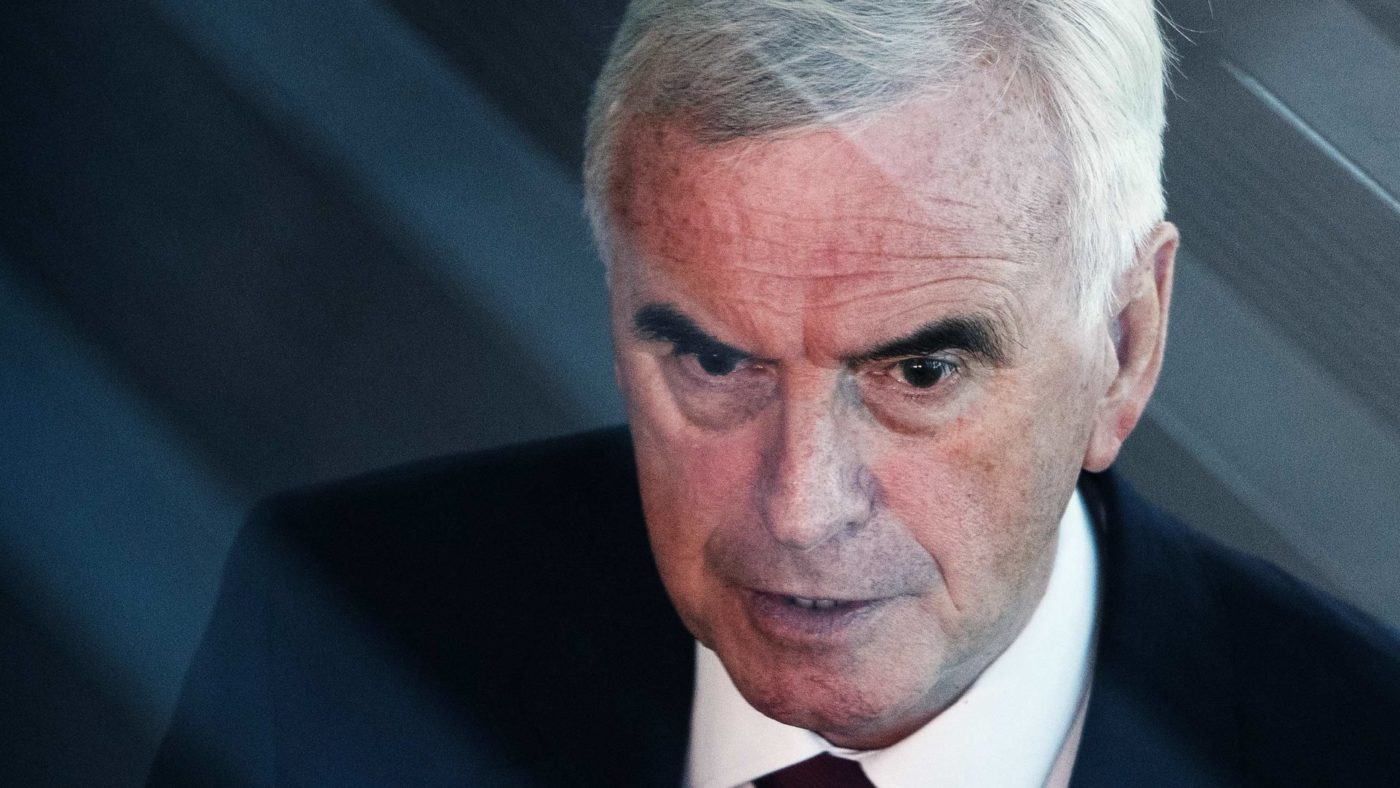What to make of the Shadow Chancellor? John McDonnell has proved time and again that he is far and away the best media performer of anyone on his party’s front bench, including Jeremy Corbyn. He has managed, somehow, to distance himself – again, more effectively than Corbyn – from some of the more extreme and damaging statements he made as a backbencher.
And this week he has proved that he can also be a master of political triangulation, that much loathed technique so professionally deployed by Tony Blair to position Labour in the most vote-friendly part of the political spectrum even at the risk of appearing to compromise what everyone else assumed to be the party’s fundamental principles.
Corbyn and McDonnell have reportedly fallen out over the latter’s refusal to oppose Philip Hammond’s plan to raise the threshold for personal allowances to £12,500 and the higher-rate level of income tax to £50,000.
Some parts of the media are getting very excited about the prospect of a new phase in Labour’s civil war being sparked by this new-found political pragmatism, but such predictions are probably over-stated. The wider party will accept pretty much any change of course provided it is endorsed by the top of the party. And relations between Corbyn and McDonnell continue to be healthy in a way we have not seen since the Shadow Cabinet careers of David Cameron and George Osborne.
So are we witnessing the slow dawning of political reality on Labour’s leadership? Is McDonnell’s latest tactic an indication that the party finally understands that in order to win a general election, it must court those who formerly voted Conservative, rather than labelling all Tories as “vermin” and being a lost cause to humanity?
It is tempting to answer that question with a “yes”. After all, one of Labour’s flagship policies at the last election – and likely to be repeated at the next one – is to scrap all university tuition fees. It’s hard to think of a policy better suited to giving the middle classes a massive state subsidy.
In Scotland, where “free” tuition has been a reality for years, the consequence has been a calamitous fall in the number of “funded” places at university and a sharp reduction in access, particularly for those from poorer backgrounds. That the same thing would happen in England under Labour doesn’t seem to bother the party’s leadership. So we must conclude that they approve of such unintended consequences, or at least are not dissuaded by them.
Similarly, the party’s recent commitment to expand free child care to parents, irrespective of income, is a tasty giveaway for those who can already well afford to pay themselves, and will undoubtedly lead to shortages of available places. And guess which families will find it harder to secure such places in that event?
But is there more to this apparent largesse towards the already comfortably well off? Corbyn’s followers – in another unintended tribute to the grandfather of another hated Blairite figure, Peter Mandelson – are happy to accept that socialism is whatever Jeremy or John say it is. The prize of a radical socialist government is too great to jeopardise by worrying about the odd compromise here and there.
Following Philip Hammond’s Budget speech, McDonnell was asked by LBC Radio if he still intended to “overthrow capitalism” – an ambition he has espoused more than once in his career. The Shadow Chancellor refused to deny that was indeed his aim, but chose to wrap up his answer with the slick chumminess for which he is now renowned: “We will have a radically fair economy, radically more democratic, radically more equal.”
So “yes”, then.
There is a major difference in approach between this Labour Party and the one led by Tony Blair in the run-up to the 1997 general election. Twenty years ago Blair said what he believed: he explained in painstaking detail why he opposed aggressive begging on our streets, why people should be able to keep more of their income and that tax rises had to be justified by specific demands. And he balanced that with a commitment to improving – and reforming – public services. We believed him and, in my view, were right to do so.
Is McDonnell attempting the same trick? Does he genuinely believe that people earning well above the average wage should be given a tax cut next year? By refusing to answer in the affirmative when asked if he still believes – as he has believed his whole life – that capitalism should be overturned, is he signalling a change of mind?
Or is he simply telling voters what they want to hear because, after all, overthrowing capitalism starts by winning an election?


